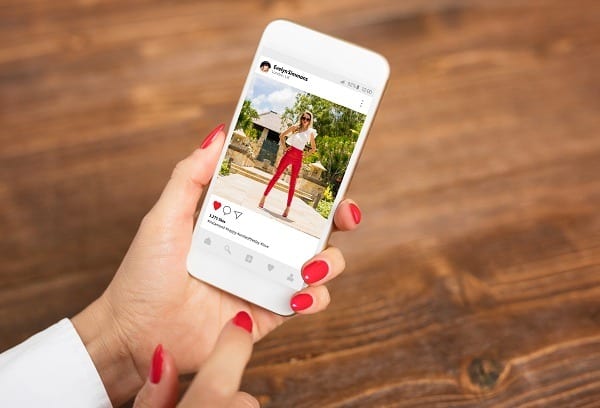Instagram has made an important, although still very small, first move this week to address the mental health of users: rolling out a trial in Australia and other countries that hides the count on the number of likes a post receives.
The aim is to help users feel less judged and “remove the pressure of how many likes a post will receive, so you can focus on sharing the things you love,” according to Facebook’s director of policy, Mia Garlick.
The thought of your child measuring their self worth according to a count of likes or followers is hard to stomach — as are the many other concerns out there regarding social media use.
And it’s easy to imagine a child measuring themselves up this way because plenty of us have done it to ourselves since social media became a dominant part of our lives. You don’t have to be ‘young’ to feel the dopamine rush that comes from accumulating likes and followers. Nor do you need to be young to feel the pressure that comes from trying to keep up with the counts associated with those you follow (let alone the perfect and heavily edited lifestyles many people share on such platforms).
Kids are already given plenty of numbers in life to measure themselves up against: from exam results, to university entrance numbers, to sporting achievements, and even the access they have to spending money on discretionary items. Halfway through my son’s first year of school and he’s already calling himself a number regarding his reading level, his swimming ability and even the place he came out of 80 kids in the school cross country. I’ve heard of kids this age coming home each night and declaring the number of ‘friends’ they had that day, and getting upset when the figure falls short.
This is just the start for them on a life full of numbers that enable them to compare themselves — later it will be university results, the number of job interviews they receive, the rent they can afford and the salary they can earn. Using numbers to measure yourself against other people is not always great for your self esteem but it’s also not always bad — it is, after all, an important tool to enable someone to improve.
But for the most part, numbers can be kept private — and numbers are not used as a measure of popularity.
That changes on social media, where users can measure each other not merely on the quality of their content, but their follower numbers and the number of likes and comments their posts receive. These numbers follow teenagers home from school, becoming just one hazard of social media in between safety concerns and the bullying that can occur on these platforms. Improving your stats on these forums doesn’t necessarily translate to better quality content and ‘self improvement’, rather it can simply lead to more time wasted trying to create the perfect image, and more hurt and disappointment when such effort doesn’t garner the expected response.
So this trial move from Instagram is a great first step.
But that’s it, a step. When you look at the figures regarding the effects of social media on mental health — and Instagram has been found to be the most problematic platform among young people — there is a lot more work to be done.
To be clear on this change, users no longer see a count ‘number’ but can still click on ‘others’ to see who has liked their posts, and go ahead and count those who have, if they wish to.
If likes are important to an individual user, then this change may be a little more inconvenient, but they’re only one click away from still looking at who has validated their posts. It will be more difficult on larger accounts that get thousands of likes but on the smaller ones — which is the vast majority of Instagram users — you’re only a quick scan from seeing whether you’ve had 2, 20 or 200 likes.
So is this enough to alleviate some of the very real mental health concerns affecting Instagram users? No. But it’s a shift that at least shows Instagram and parent company Facebook are looking at the problem. How much they really want to address the issue is still questionable.
What if Instagram removed likes altogether? What if you posted to social media and could receive comments, but never received likes, and had little to no measure of how the post was doing?
Would you still post?
Would you think differently about your social media use? Would you focus more on updates for family and close friends, over trying to build any kind of audience? Perhaps you would, but take away the rush that come from generating likes, and one wonders how many people would still bother.
A number of Instagram ‘influencers’ have already noted how demotivating this change is and raised concerns about the businesses they have built.
Indeed, removing likes altogether could potentially destroy the platform.
Maybe then humanity would move on. Or a new social platform would pop up in its place.


